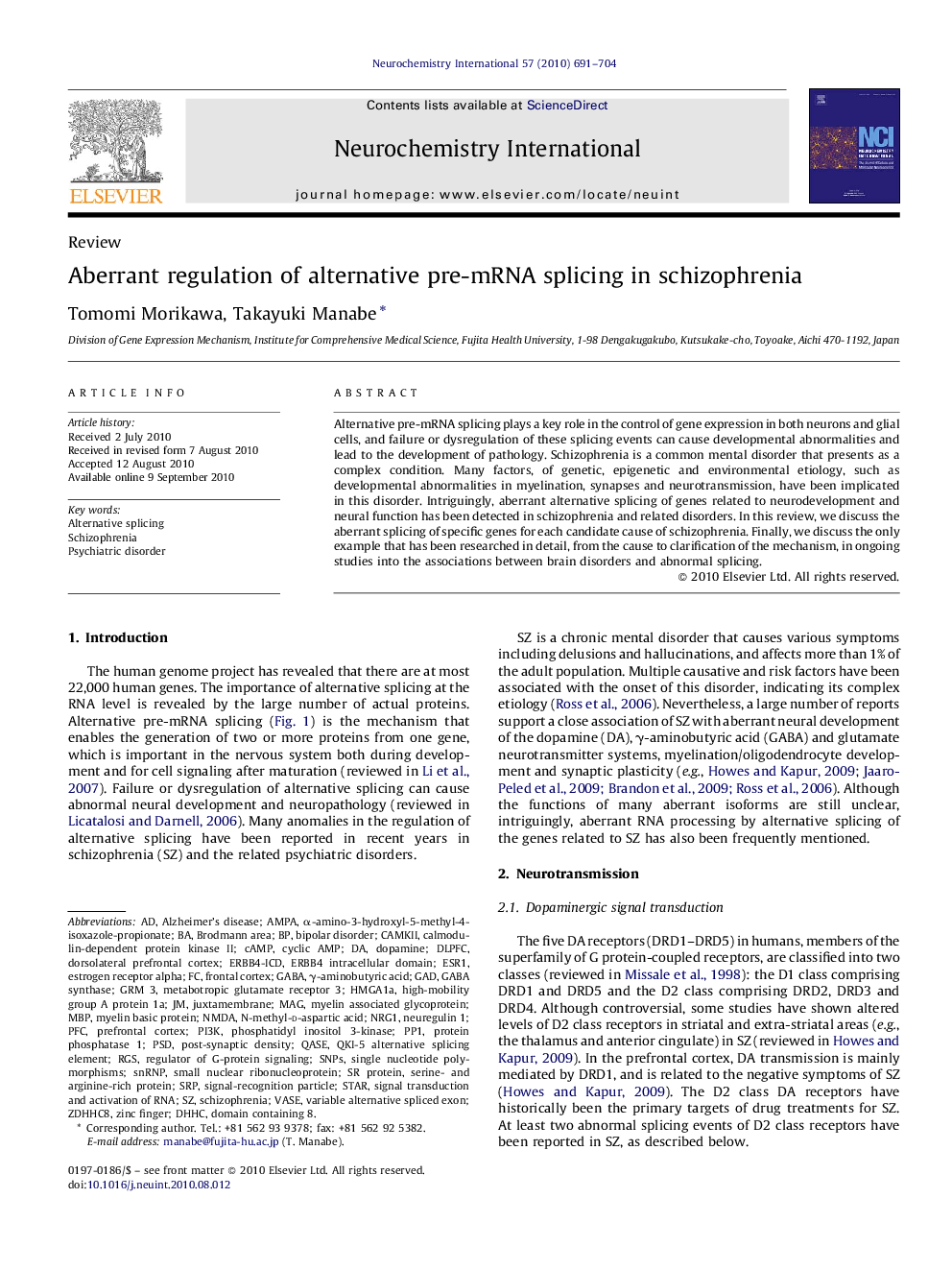| Article ID | Journal | Published Year | Pages | File Type |
|---|---|---|---|---|
| 2200977 | Neurochemistry International | 2010 | 14 Pages |
Alternative pre-mRNA splicing plays a key role in the control of gene expression in both neurons and glial cells, and failure or dysregulation of these splicing events can cause developmental abnormalities and lead to the development of pathology. Schizophrenia is a common mental disorder that presents as a complex condition. Many factors, of genetic, epigenetic and environmental etiology, such as developmental abnormalities in myelination, synapses and neurotransmission, have been implicated in this disorder. Intriguingly, aberrant alternative splicing of genes related to neurodevelopment and neural function has been detected in schizophrenia and related disorders. In this review, we discuss the aberrant splicing of specific genes for each candidate cause of schizophrenia. Finally, we discuss the only example that has been researched in detail, from the cause to clarification of the mechanism, in ongoing studies into the associations between brain disorders and abnormal splicing.
Research highlights▶ Aberrant splicing of genes involved in brain development is linked to schizophrenia. ▶ Changes in levels of receptor subunit splice isoforms may affect neurotransmission. ▶ Patients show changes in expression of neurotransmitter receptor splice isoforms. ▶ Ratios for splice isoforms of some neurotransmission-related proteins are altered. Splice isoforms encoding signaling proteins are also affected in schizophrenics.
